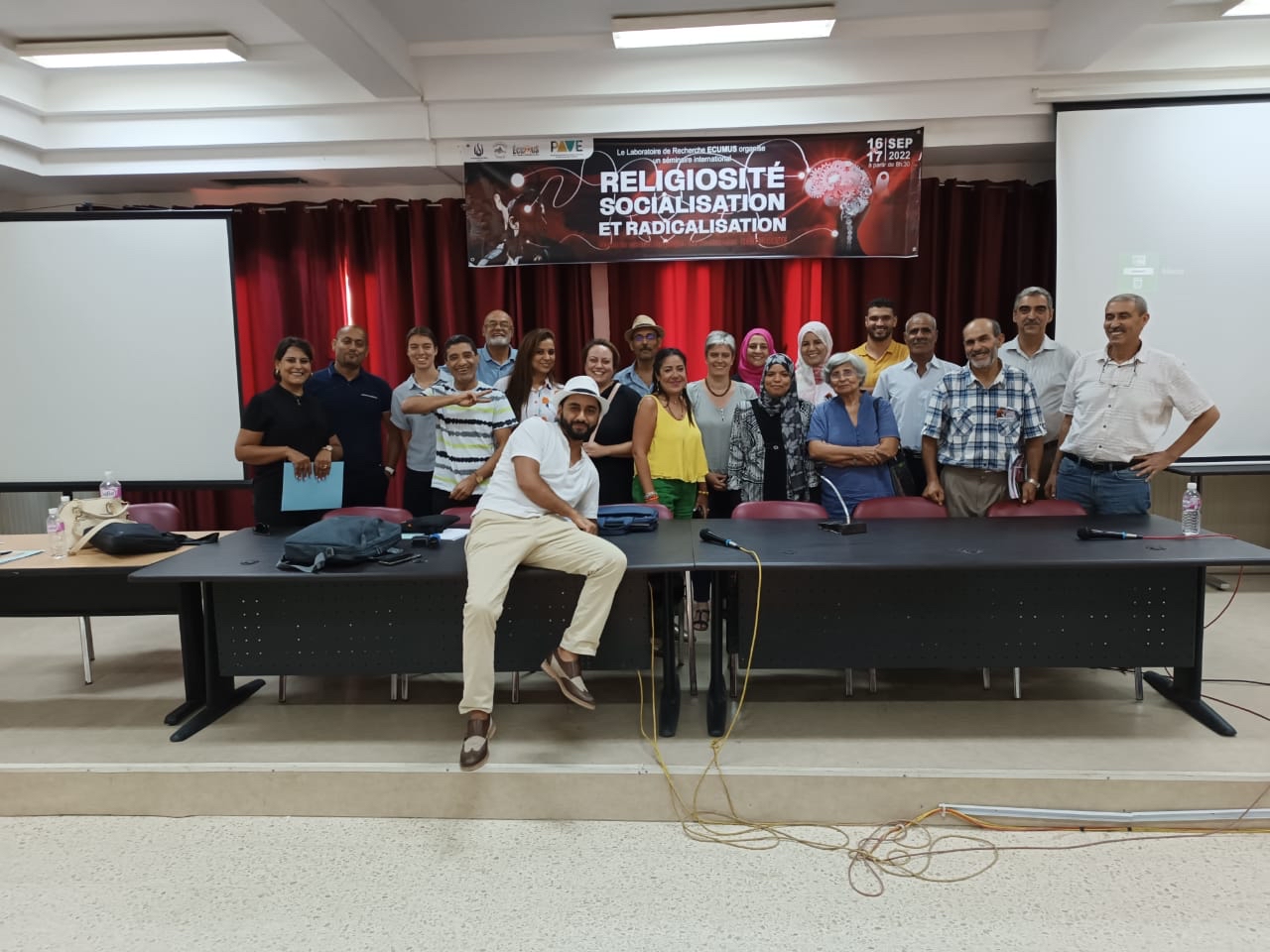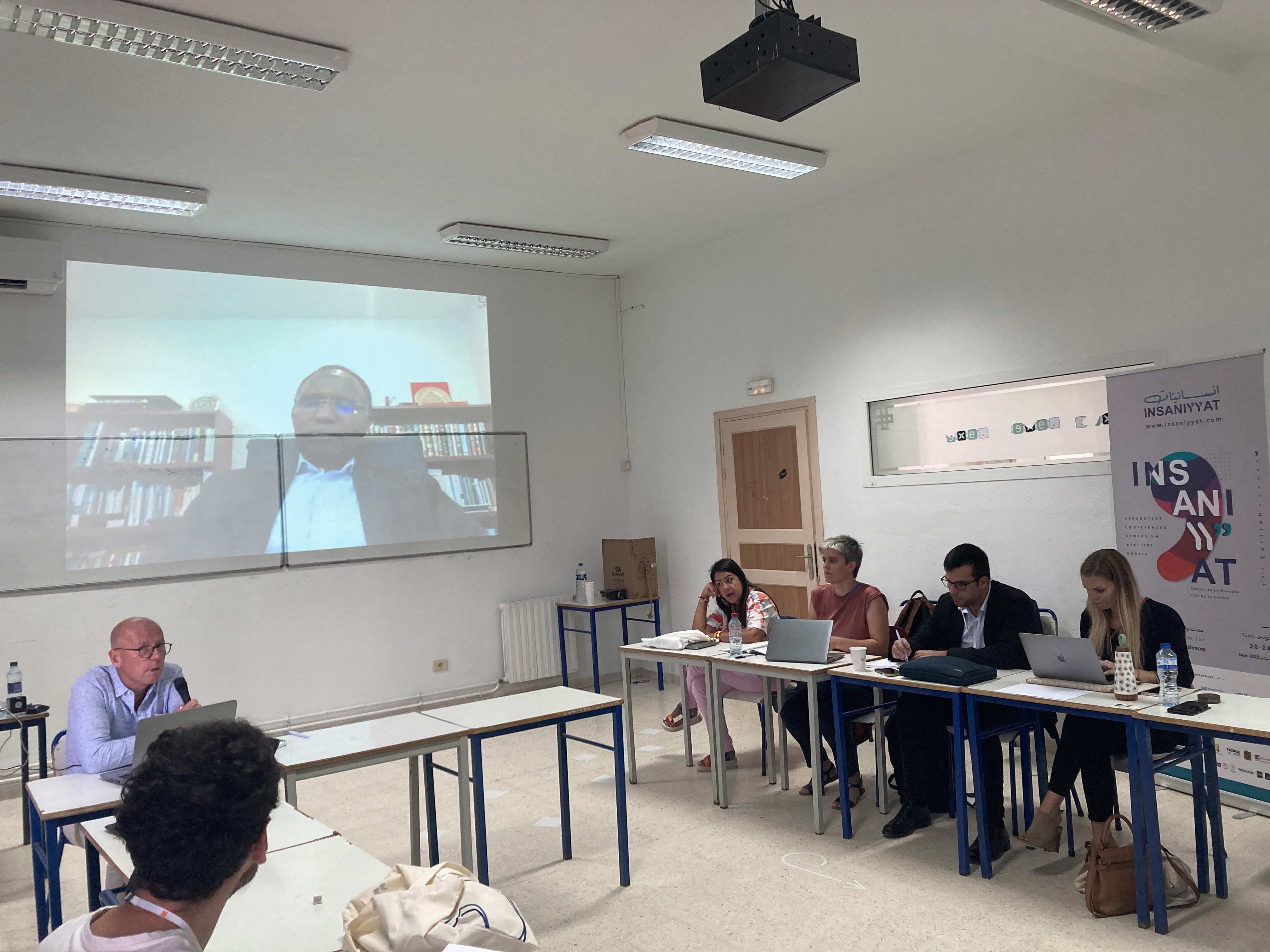PAVE in Tunisia
PAVE partners travelled to Tunisia to participate in scholarly exchanges and policy roundtables related to the research conducted in the context of the PAVE project.
16th & 17th September: Sfax
In Sfax, the first stop, they met with the PAVE team of the University of Sfax that organised a research seminar evolving around the significance of religion and socialisation for radicalisation. Together with contributions by Tunisia-based researchers on the interconnection between religion, radicalisation and politics, as well as the relevance of sports and artificial intelligence for (de)radicalisation, Marie Kortam from PAVE partner FMSH presented her research findings on the roles that civil society organisations and international cooperation can play for the prevention of violent extremism. In addition, Véronique Dudouet and Johanna Hülzer (Berghof Foundation) contributed insights on how religious leaders can contribute to building community resilience in Iraq and Lebanon, in order to provide a comparative perspective to the case of Tunisia. The research seminar was complemented by a policy roundtable including representatives from local administrations, religious institutions, and civil society. The invited attendees engaged in lively debates about the significance of religion for radicalisation towards violent extremism. A careful revisit of the PAVE policy brief for Tunisia, including the main policy recommendations deducted from the field research results, will take place based on these discussions.

19th & 20th September: Tunis
On Monday, 19th September, PAVE partners participated in a policy roundtable in Tunis, organised by Prof. Hmida Ennaifer and Maher Zoghlami, who also conducted PAVE research in Tunisia. The roundtable brought together eminent figures from the political world, academia, and media representatives. After the key research findings and policy recommendations were presented, Josep Garcia Coll from PAVE partner FUNDEA shared impulses for improved EU preventing and countering violent extremism (P/CVE) policies in the Euro-Mediterranean region, with an emphasis on transnational dynamics of radicalisation. During the discussion, the participants of the roundtable could provide their observations in relation to the presented findings and policy recommendations. For example, one participant observed it as problematic that institutions of religious higher education, such as Al-Zaitouna University in Tunis, merely look at the phenomenon of violent extremism from a theoretical perspective. Instead, it was seen as beneficial if these institutions also engaged in empirical studies of the phenomenon in order to obtain a more realistic and practical knowledge that further can be translated into preventative action on their part. Afterwards, Marie Kortam (FMSH) and Juline Beaujouan (OTT) drew comparisons to the Lebanese and Iraqi cases to the afore-presented Tunisian findings.
Watch a recorded presentation of the research findings below
On 20th September, the PAVE team was joined by colleagues from its two sister projects PREVEX and CONNEKT for a double panel at the Insaniyyat Forum. The first panel was held in Arabic and chaired by Marie Kortam. The second panel was held in English and chaired by Véronique Dudouet, with presentations and discussions revolvingaround questions about how community resilience can be built and maintained. While Josep Garcia Coll presented an empirical application of the 3N model of (de)radicalization in the MENA region, Juline Beaujouan explained the tension and incompatibility between community resilience and the resilience of the state based on the case of Iraq. Morten Boas (NUPI, PREVEX) highlighted how external support for community resilience needs to have a “light foot print” in order to be credible for the affected populations and support internal legitimacy of local resilience agents effectively, such as respected religious figures.
